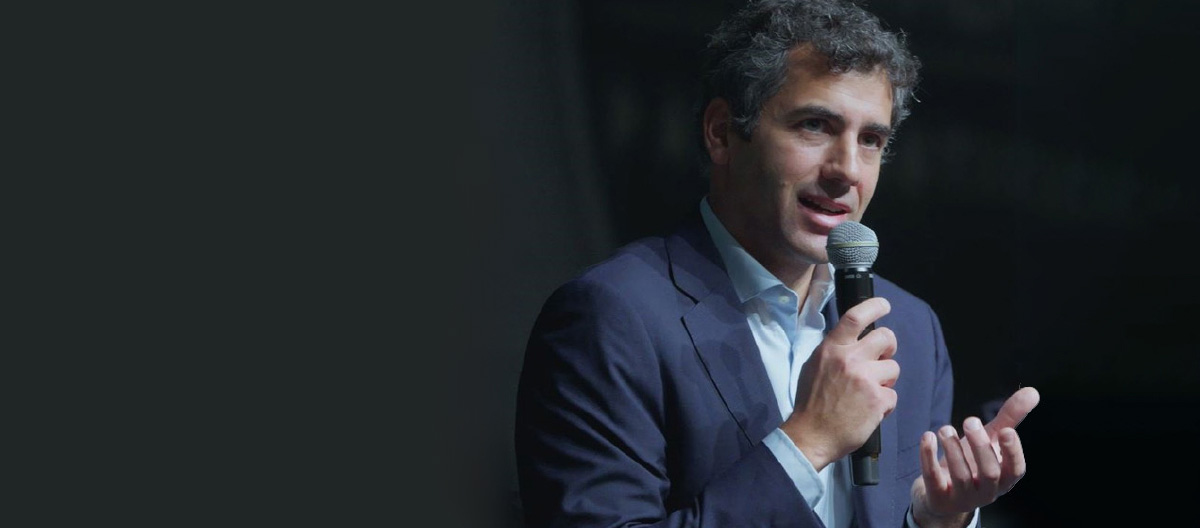
The Future of FinTech: Innovation, Challenges, and Opportunities – Interview with Giacomo Mazzanti from Deloitte Consulting
5 June 2024In the ever-evolving FinTech landscape, innovation and adaptability are essential to remain competitive. We asked Giacomo Mazzanti, Partner at Deloitte Consulting and lecturer of the Trends in the FinTech Industry course in the Professional Master in Finance and Fintech at Bologna Business School, to share his vision on emerging sectors, required skills, and the challenges that future students of Bologna Business School will face. From the opportunities offered by FinTech for Good to the revolutionary impact of generative AI, let’s explore how to best prepare for a successful career in this dynamic and rapidly growing sector.
Based on your experience in the FinTech world, which sectors do you think will see the most development in the near future, and which skills will be in the highest demand?
Among the fastest-growing sectors, we definitely see payments and lending, which already represent 35% and 15% of total FinTech investments, respectively. Decentralized finance, or DeFi, is also becoming increasingly relevant, rapidly emerging as a viable alternative to traditional models by allowing users to access financial services without intermediaries. Lastly, I would mention FinTech for Good: a globally emerging phenomenon that combines finance, technology, and sustainability with significant potential to create a positive impact on society. In a world where 1.7 billion adults lack access to banking services, FinTech for Good offers opportunities for social and economic transformation and a force for change in the financial sector. In terms of required skills, the FinTech world increasingly values profiles that combine technological “hard skills,” such as developers, machine learning experts, and data analysts, with generative and conversational AI experts, and “soft skills,” such as creative thinking, negotiation, collaboration, flexibility, and an innovation-oriented mindset.
In the Finance and Fintech sector, changes occur rapidly and constantly. In an environment where financial practice merges with technological progress, what challenges will students of the Professional Master in Finance and FinTech face after completing their studies?
Young people entering the workforce today need to be flexible and ready to face a competitive and ever-evolving environment, not only from a technological standpoint but also in terms of work methods and interactions. Even after completing their studies, students must stay updated on technological innovations and new required skills to remain competitive in the market. It is estimated that skills sought in the financial services sector change every 2.5 years: young professionals must be prepared to adopt a culture of continuous learning to stay abreast of innovations, particularly those related to AI, which is revolutionizing the banking sector, imposing a paradigm shift in the operational and management methods of financial institutions. Additionally, the ability to collaborate constructively in interdisciplinary teams and communicate effectively with professionals from diverse backgrounds, be they technological, business, or regulatory, will become increasingly crucial.
Why choose a master’s program dedicated to these topics? What advantages does this course offer to a young graduate looking to build a career?
A study program like this allows students to deeply understand how new opportunities linked to technological evolution are pervasively transforming the world of financial services, a context in which the use of the most innovative technologies is prompting industry players to reshape traditional schemes and propose new business and service models. The main objective of the course is therefore to systematize technological knowledge, enabling participants to develop a strategic vision of the FinTech context and, more generally, of how the entire industry is transforming. The course also offers the opportunity to interact directly with industry professionals who have spent years coordinating and leading projects with banks and FinTech companies and will bring their experience to the classroom, sharing concrete use cases they have personally witnessed.
From the impact of new technologies on processes to the constant focus on emerging trends in the financial sector. Your course in Trends in the FinTech Industry is rich with extremely relevant insights and in-depth studies. What themes will it be most important to focus our attention on in the coming years?
We have already mentioned the phenomenon of FinTech 4 Good and how the theme of sustainability, linked to generating a positive impact on society, is rapidly becoming a priority for the financial services industry. In this context, technological innovation represents a strategic enabler to accelerate the dissemination of these new models of “sustainable finance,” facilitating their scalability and economic sustainability. Another theme that will become increasingly relevant concerns the expansion of the financial sector’s boundaries: today, we already see how non-traditional players, including BigTechs or social platforms, are beginning to offer financial services to their users. On the other hand, traditional banks and insurance companies have started to sell their products and services through the channels of commercial partners (e.g., e-commerce). It will be interesting to understand how the new ecosystem will take shape and what dynamics will develop between the various actors. Finally, we must mention how data and GenAI are revolutionizing the world of financial services: GenAI has the potential to be the most disruptive technology in the banking and financial sector in the last 30 years, pervasively impacting all areas of the industry, from product delivery to user assistance to control processes.
